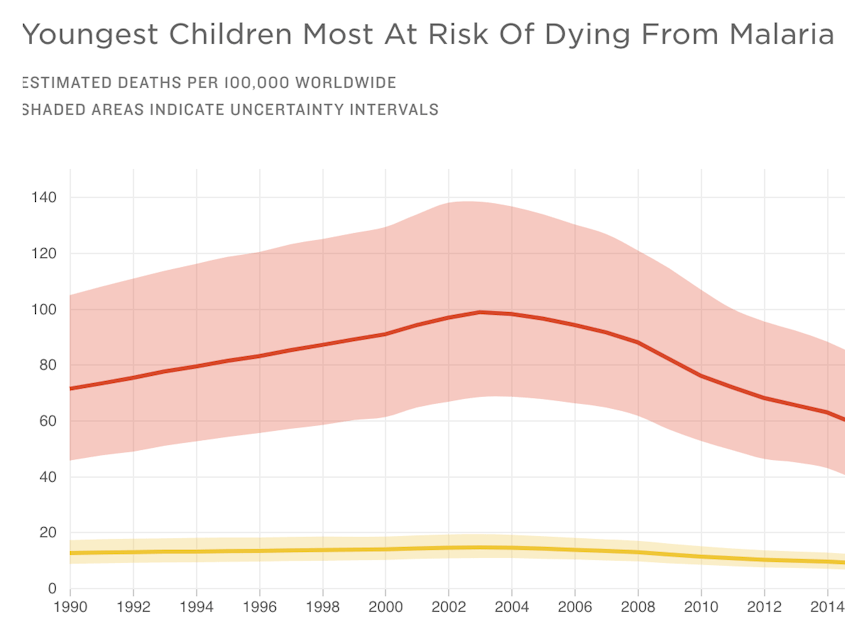World's First Malaria Vaccine Launches In Sub-Saharan Africa

Today health officials are making history. They're rolling out the first approved vaccine aimed at stopping a human parasite. It's for malaria — and the hopes are that one day the vaccine could save the lives of tens of thousands of children each year.
"This [rollout] is a massive success of the research community," says Dr. Pedro Alonso, who directs the Global Malaria Programme at the World Health Organization.
This vaccine — called RTS,S — is one of the few immunizations designed and launched specifically to help young children in Africa, says Deborah Atherly at PATH, a nonprofit that helped develop the immunization.
"It's a pro-poor vaccine, if you will," Atherly says. "I think that's also a really important milestone in vaccine development and introduction."
Malaria is still a top killer of children worldwide but children in Africa are most affected. Every two minutes a child or baby there dies of the disease. Some child can have up to six bouts of malaria in just one year, says Dr. Mary Hamel of WHO.
Sponsored
The vaccine took more than 30 years — and more than $500 million — to develop. It was an international collaboration among WHO, PATH, the pharmaceutical company GlaxoSmithKline and a network of African countries. The Bill & Melinda Gates Foundation — which is a sponsor of NPR and this blog — is also a funder of the vaccine.
On Tuesday, toddlers in Malawi will start receiving the immunization. Then children in Ghana and Kenya will follow shortly. The goal is to vaccinate about 360,000 children in this large-scale pilot project. And then WHO will determine the best way to roll out the vaccine elsewhere, Atherly says.
The big question is: Will this vaccine work as well in the real world as it has in clinical trials, says epidemiologist William Moss, who directs the International Vaccine Access Center.
"The launch of the malaria vaccine is a really a landmark," Moss says, "but the the vaccine's efficacy is much lower than that for many of our other childhood vaccines."
In a large trial, the vaccine reduced the number of clinical malaria cases by about 40 percent and severe malaria cases by about 30 percent, Moss says. By comparison, some childhood vaccines offer more than 90 percent protection.
Sponsored
Parasites, such as malaria, are more complex than viruses and bacteria, Moss says. They can have more sophisticated machinery for evading our immune system. So creating effective vaccines against them is quite challenging, he says.
Still, Moss thinks the vaccine could have a significant impact on children's health because malaria is so common in parts of sub-Saharan Africa. "There are estimates that one life would be saved for every 200 children who are vaccinated," he says.
Another issue with the vaccine is that children need four doses. That means four trips to the clinic — which could be tough for some families in rural areas, Moss says.
But PATH's Atherly thinks many families will want to make the extra trips.
"Just from a human perspective, I think if a mom can provide something for her child that will help control this disease, she will," Atherly says. "We believe there will be a lot of demand from the mothers and other caregivers. " [Copyright 2019 NPR]



